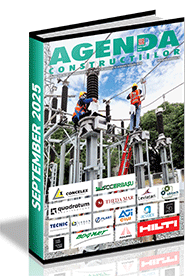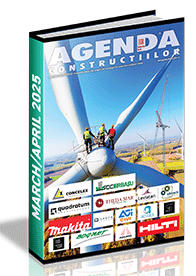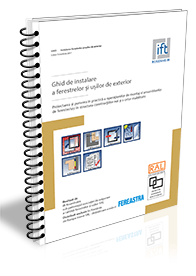| ANALYSIS: RES between competitiveness and efficiency |
| English Section Publicat de Ovidiu Stefanescu 20 Mar 2013 13:09 |
 The renewable energy and all the problems related to the topic still represent a subject of high interest for Romania, especially if we take into account the mandatory observance of the Directive 31/2010/EC, which refers to the energy efficiency of buildings. Although the local and European legislation does not make a direct reference to the concept of sustainability, it is clear that this is a central point of discussion, especially because through its observance is obtained, implicitly, the fulfilment of the NZEB conditions (building with near-zero energy consumption). The use of alternative resources (RES) plays a central role in all that structure and the rules, which are valid on the national level, are quite explicit. The data currently available indicate that, at the end of 2012, the RES amounted to only 7.5%, despite the massive investments that have been made in the past two years and which targeted mainly the developing of wind farms. Industry experts consider that this delay can be quickly recovered, in the context in which the legal provisions in the field are strictly observed. Thus, in 2013, investment intents totalling approximately 4 billion EUR were already announced, out of which 300 million EUR will be directed towards supporting the photovoltaic segment. According to information released by Transelectrica – the transport and system operator of the National Power System (SEN), the total installed capacity of solar systems for electricity production stands around 50 MW at the moment, but through the programs expected for this year it may be increased by six times and reach the threshold of 300 MW. We can analyze the situation in Germany for comparison, where this indicator is positioned at 32.000 MW, a fact which demonstrates - on the one hand – the viability of the concept and – on the other hand - contradicts some theories which link, artificially, the increase of energy price with the implementation of renewable energy projects. A simple calculation can reveal that, in the conditions of creating a fair compensation mechanism and through encouraging the investment in the industry, energy production costs will have a rate of decrease that may even exceed the financial burden involved by subsidizing the sector. For further information and a detailed analysis of the current Agenda Constructiilor issue, click here! The renewable energy and all the problems related to the topic still represent a subject of high interest for Romania, especially if we take into account the mandatory observance of the Directive 31/2010/EC, which refers to the energy efficiency of buildings. Although the local and European legislation does not make a direct reference to the concept of sustainability, it is clear that this is a central point of discussion, especially because through its observance is obtained, implicitly, the fulfilment of the NZEB conditions (building with near-zero energy consumption). The use of alternative resources (RES) plays a central role in all that structure and the rules, which are valid on the national level, are quite explicit. The data currently available indicate that, at the end of 2012, the RES amounted to only 7.5%, despite the massive investments that have been made in the past two years and which targeted mainly the developing of wind farms. Industry experts consider that this delay can be quickly recovered, in the context in which the legal provisions in the field are strictly observed. Thus, in 2013, investment intents totalling approximately 4 billion EUR were already announced, out of which 300 million EUR will be directed towards supporting the photovoltaic segment. According to information released by Transelectrica – the transport and system operator of the National Power System (SEN), the total installed capacity of solar systems for electricity production stands around 50 MW at the moment, but through the programs expected for this year it may be increased by six times and reach the threshold of 300 MW. We can analyze the situation in Germany for comparison, where this indicator is positioned at 32.000 MW, a fact which demonstrates - on the one hand – the viability of the concept and – on the other hand - contradicts some theories which link, artificially, the increase of energy price with the implementation of renewable energy projects. A simple calculation can reveal that, in the conditions of creating a fair compensation mechanism and through encouraging the investment in the industry, energy production costs will have a rate of decrease that may even exceed the financial burden involved by subsidizing the sector. For further information and a detailed analysis of the current Agenda Constructiilor issue, click here! |
ABONARE REVISTA (click aici): PROIECTE | INVESTITII | REVISTE | INDEX COMPANII
DATE DE CONTACT: Agenda Constructiilor & Fereastra - Tel/Fax: 021-336.04.16, 031-401.63.88




















































